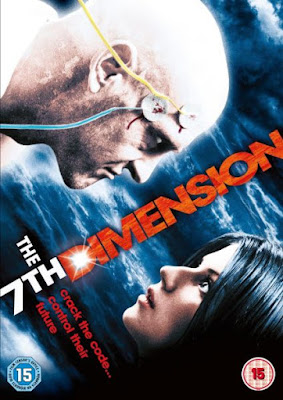Mercenary, Royce (Adrien
Brody, Brothers Bloom) is the nominal
leader for jungle rebel Isabelle (Alice Braga, Repo Men), cartel enforcer (Danny Trejo, Machete), enigmatic ‘doctor death’ (Topher Grace, Dollhouse), hulking Spetsnaz soldier,
taciturn yakuza hitman, Sierra Leone revolutionary, and a death-row convict - as
most-dangerous-game targets for inter-world safari scenario. Discovery of empty
cages leads humans to a first encounter with tusked and horned mega-wolf-boar
creatures, bullish attackers under a green canopy and an overcast sky which conceals
the panoramic view of alien view finally seen from a clearing, in a supposed
revelation that’s telegraphed by an international poster’s blurb strap-line.
Sequel, or franchise
reboot, this copies its signature elements (mini-gun mayhem, camouflage/
invisibility fields, primitive booby traps, energy weapons, human slaughter in
camps), including music cues, from John McTiernan’s original Predator (1987),
but lacks the fun entertainment drawn from macho parodies of muscle–bound
heroes. The predators are revealed to be classic ‘tracker’ sort or new black ‘berserker’
type, as racially different castes/ breeds apparently engaged in a blood feud (perhaps
one affecting their entire tribal species’ evolutionary development beyond that
of savage conflict?), whilst eagerly preying upon other species’ morality, seen
here as the primary human weakness.
Even while looking out for
a plot ‘ambush’, Noland (Laurence Fishburne, a black actor with genuine screen
presence in an era of repurposed rappers), is a surprise as the schizoid loner, survivor/
scavenger, but he only explains the movie's xenopedia back-story, and then betrays
everyone. Aptly, for a picture that proceeds through levels of skill, just like
standard video games, the cast do role-play, instead of even basic acting, yet confidence
without any competence invites disaster.









